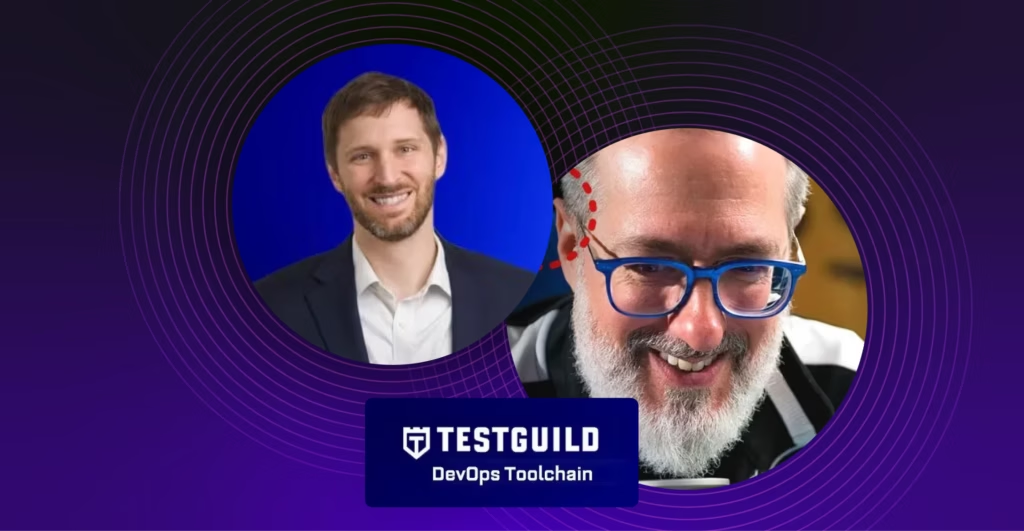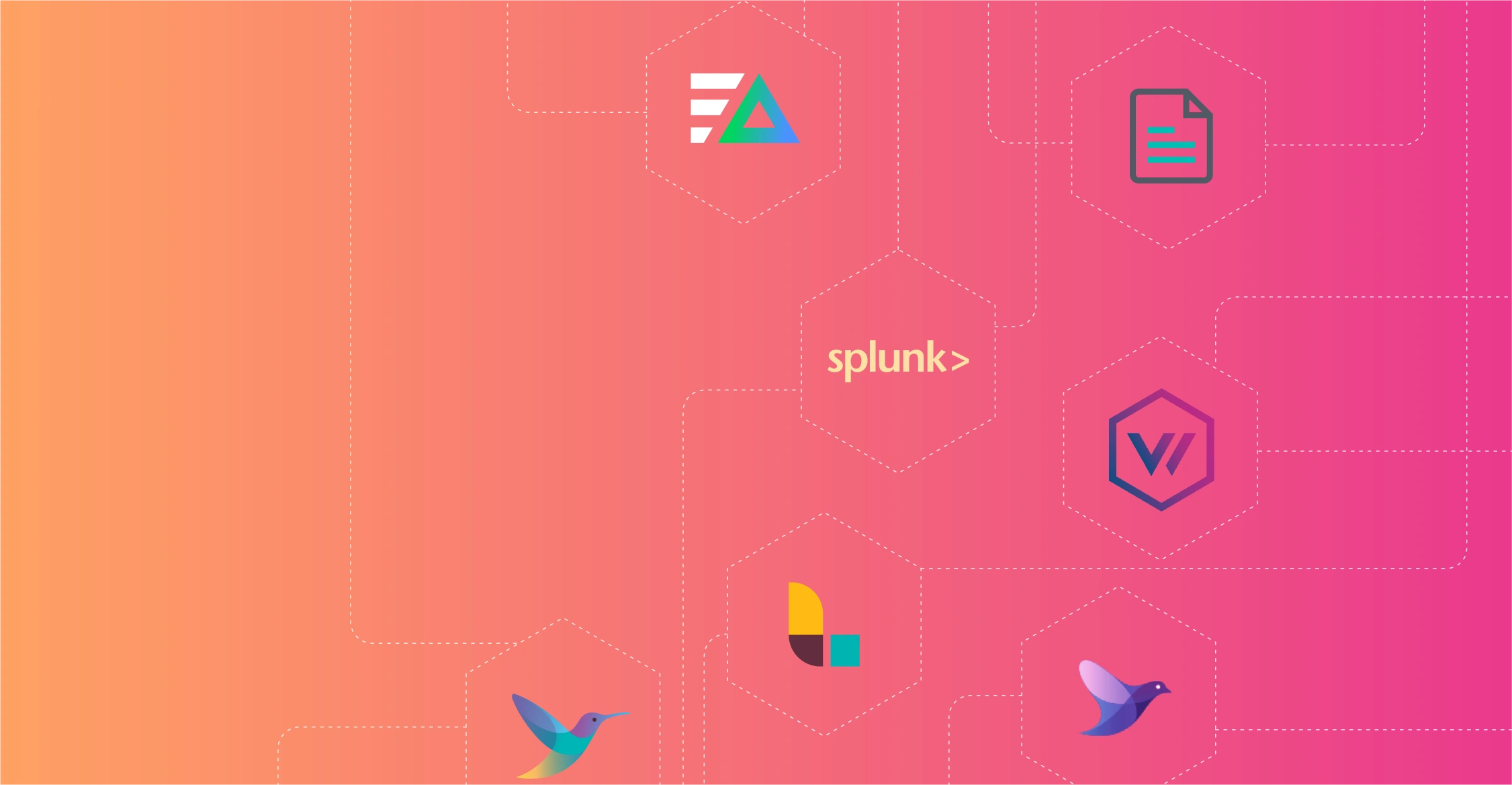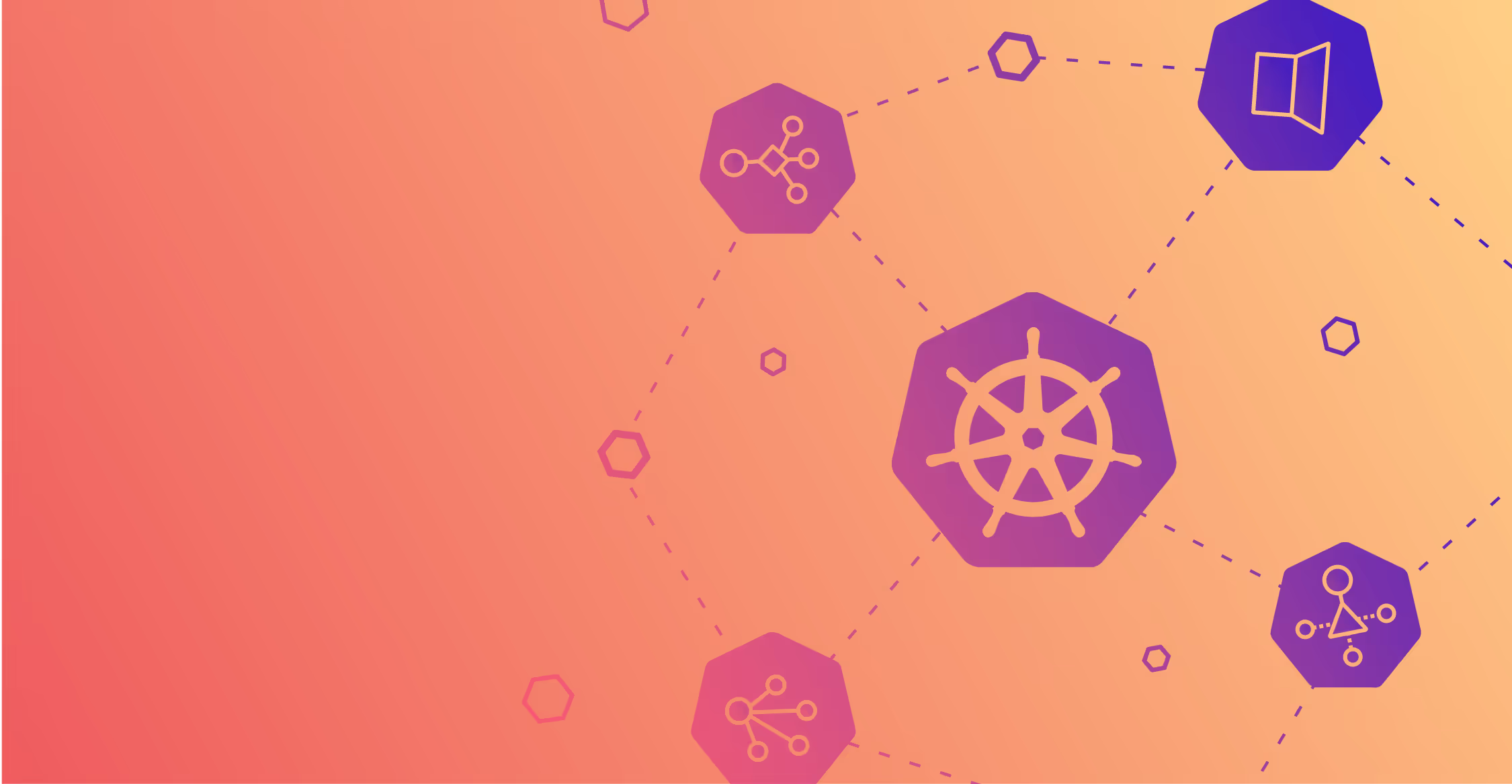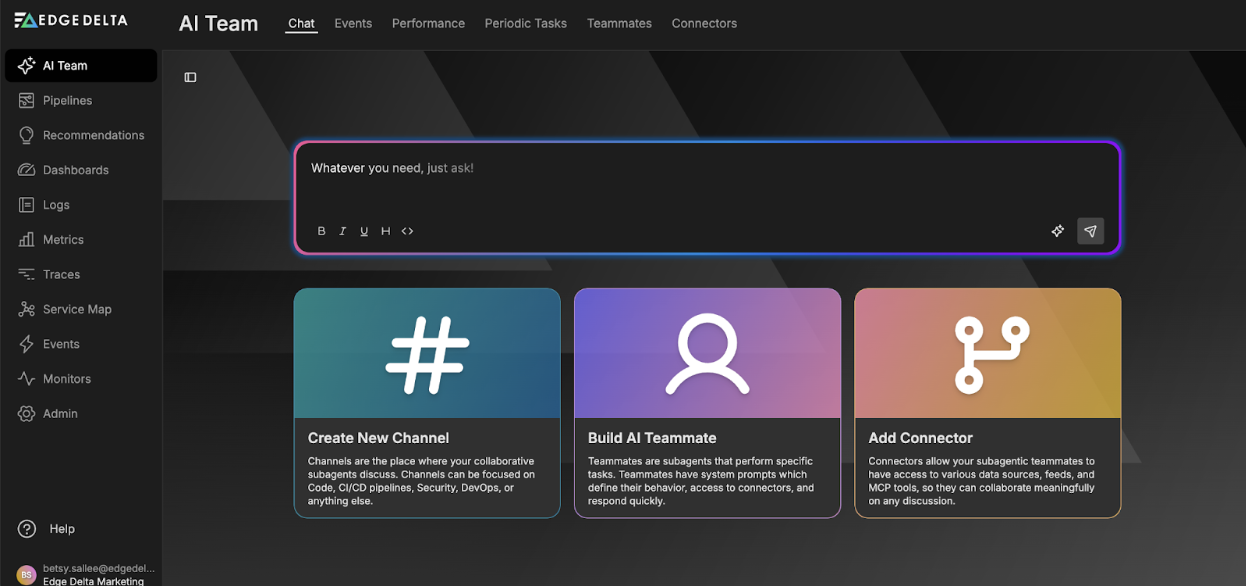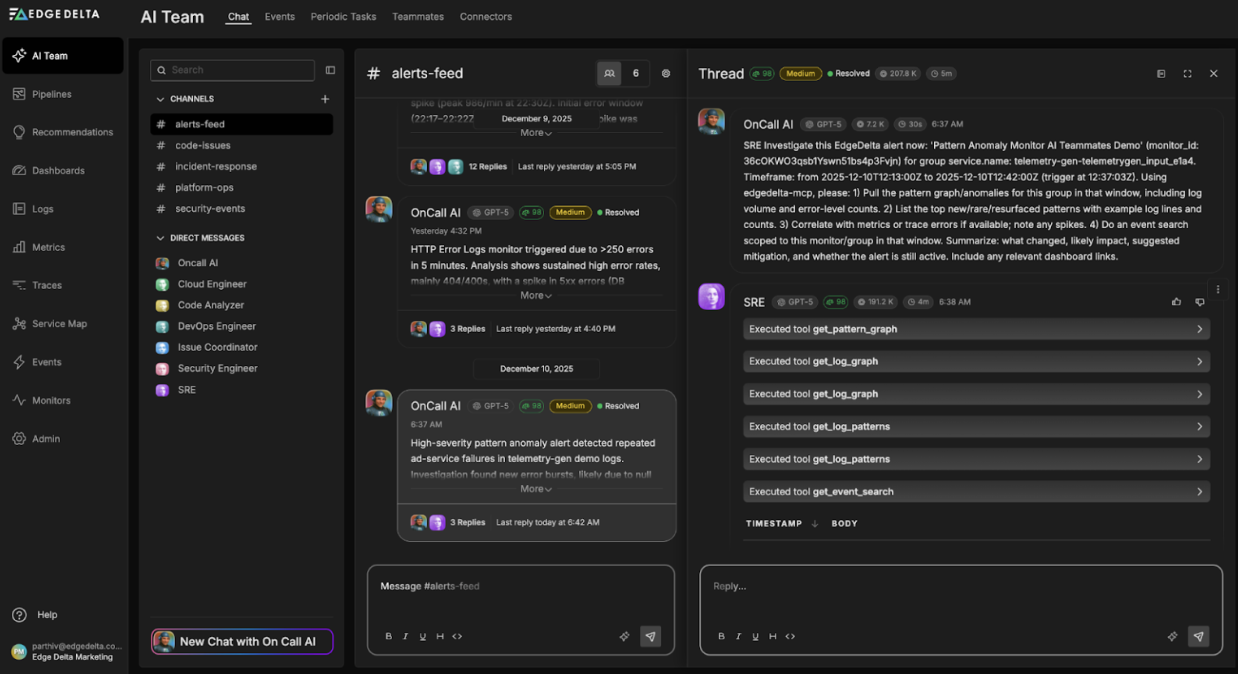In today’s technological landscape, observability has become a buzzword. But what does it truly entail, and how does it differ from traditional monitoring? To delve deeper into this topic, David Wynn, Edge Delta’s Principal Solution Architect, sat down with Joe Colantonio on the TestGuild DevOps Tool Chain podcast.
Peeling Back the Layers of Observability
Observability is not just about monitoring systems, but about understanding them. It involves a holistic approach to gathering and analyzing data to gain insights into the inner workings of complex systems. Unlike traditional monitoring, which focuses on checking the health of systems, observability aims to provide a deeper understanding of how systems behave under different conditions.
Automate workflows across SRE, DevOps, and Security
Edge Delta's AI Teammates is the only platform where telemetry data, observability, and AI form a self-improving iterative loop. It only takes a few minutes to get started.
Learn MoreThe Role of AI in DevSecOps
One of the key highlights of the conversation was the transformative role of AI in DevSecOps. They also emphasized the importance of using AI-driven tools to analyze vast amounts of data generated by modern systems. These tools can help identify patterns and anomalies that might go unnoticed by traditional monitoring systems, thus enhancing the overall security and performance of systems.
Centralizing Logs and Utilizing Tools
The importance of centralizing logs as a crucial first step towards achieving observability. He recommended using tools like Datadog and Edge Delta to collect, store, and analyze log data effectively. These tools provide insights into system behavior and help identify issues before they escalate into major problems.
The Evolution of Observability
With the rise of microservices and distributed systems, observability has evolved to encompass a broader range of tools and techniques. David explained that the three pillars of observability—logs, metrics, and tracing—play a vital role in gaining a comprehensive understanding of complex systems. He also highlighted the importance of tools like OpenTelemetry in standardizing observability practices across different platforms.
Anecdotes from the Gaming Industry
Drawing from his experience in the gaming industry, David shared insights into the unique challenges of observability within different types of games. He explained that observability goes beyond monitoring system statuses and aims to provide a comprehensive understanding of player behavior and system activities. This understanding is crucial for optimizing game performance and enhancing the overall player experience.
The ‘Shift Left’ Approach and the Role of AI
Lastly, they emphasized the importance of adopting a ‘shift left’ approach to observability, where observability practices are integrated into the development process from the outset. As well as highlighted the role of AI in enhancing observability tactics, predicting that AI-driven tools will play an increasingly important role in the future of observability.
In summary, this conversation shed light on the intricacies of observability, highlighting its transformative role in modern systems. Whether you’re an SRE, a DevOps specialist, or simply curious about the intersection of AI and system observability, this conversation is sure to provide valuable insights into this rapidly evolving field.

